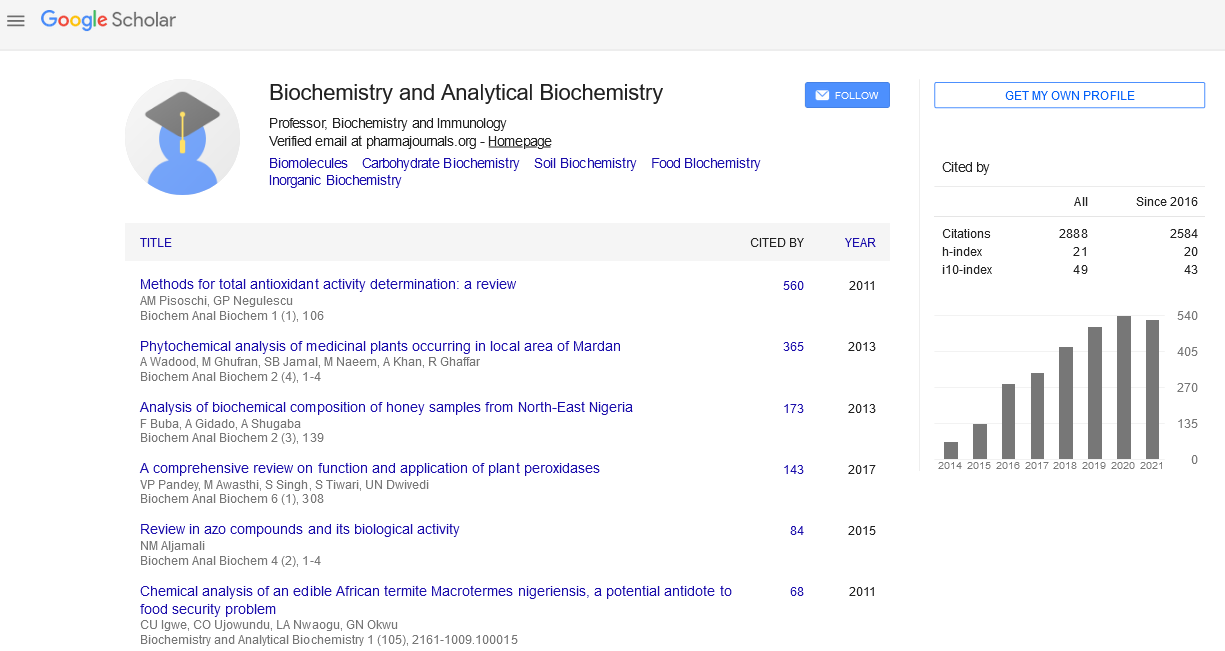Indexed In
- Open J Gate
- Genamics JournalSeek
- ResearchBible
- RefSeek
- Directory of Research Journal Indexing (DRJI)
- Hamdard University
- EBSCO A-Z
- OCLC- WorldCat
- Scholarsteer
- Publons
- MIAR
- Euro Pub
- Google Scholar
Useful Links
Share This Page
Journal Flyer

Open Access Journals
- Agri and Aquaculture
- Biochemistry
- Bioinformatics & Systems Biology
- Business & Management
- Chemistry
- Clinical Sciences
- Engineering
- Food & Nutrition
- General Science
- Genetics & Molecular Biology
- Immunology & Microbiology
- Medical Sciences
- Neuroscience & Psychology
- Nursing & Health Care
- Pharmaceutical Sciences
Abstract
Slow Unfolding Pathway of the Hyperthermophilic Tk-RNase H2 Examined by Pulse Proteolysis Using Mutant Proteins
Kanako Shima, Ai Nagao, Jun Okada, Satoshi Sano and Kazufumi Takano
The unfolding of ribonuclease H2 from the hyperthermophilic archaeon Thermococcus kodakarensis (Tk-RNase H2) is remarkably slow. In previous work, Tk-RNase H2 unfolding intermediates, IA-, IB-, IC- and ID-states, were observed by pulse proteolysis analysis at 25°C, where the IB- and IC-states are the main forms in the slow unfolding process of this protein. Here, we examined the slow unfolding pathway of Tk-RNase H2 by pulse proteolysis using mutants. For the stabilized variant, D7N, the life time of IA- and IB-states decreased but the IC-state appeared earlier at 25°C, indicating the stabilization of the IC-state. The IA- and IB-states were not observed in the destabilized variant, L33A, at 25°C, whereas in the wild-type these two states disappeared at 50°C. Our results suggest that at higher temperatures the IC-state is the real native state of Tk-RNase H2, whereas the native, IA- and IB-states at 25°C are artificial forms at lower temperatures.


